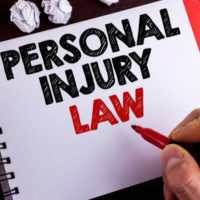Civil vs Criminal Cases In Florida

Sometimes, when a person is injured in Florida, it can be difficult to determine whether you have been the victim of a crime or not. The answer is sometimes more complex than one might think, especially in car accident cases or other accident situations where details are vague. While an accident is not the same as a malicious act, sometimes extreme negligence can be criminal. If you have been injured, most of the time you will seek to file a civil suit against the person who harmed you, but there may also be a criminal component in some matters.
Florida Civil Courts
The U.S. justice system has two types of courts. Civil courts are the avenue for lawsuits brought by private people, and they usually involve either breaches of contract or what are called torts. A tort is basically the civil version of a crime – it is classified as a ‘civil [non-criminal] wrong’ for which damages, such as money or another form of redress, can be obtained. Torts are committed against a specific person or entity, and can be intentional (such as assault, battery, or trespass), or they can be negligent, which is normally the type of tort seen in vehicle accident cases.
Being found liable in civil court is not the same as being found guilty in a criminal case. Civil liability does not lead to jail time; usually it leads to what the law calls remedies – usually monetary damages, or in some cases, making the plaintiff “whole” by giving them back what they have lost. For example, sometimes a case will be settled or decided with the plaintiff being reimbursed for any money or items they lost and that will be that.
Criminal Cases In Florida
Civil courts never punish torts with jail time. That sentence is reserved for those convicted of a crime, which is a wrong committed against society as a whole (unlike torts, which are committed against individuals or entities like corporations). There are very often victims of crimes, but they are not the ones bringing charges against the alleged perpetrator – the state of Florida does that on their behalf. The burden of proof in a criminal case is also higher – guilt must be proven beyond a reasonable doubt, while showing liability requires a lower standard (that is, less clear evidence).
If you have been charged with a crime, you need a criminal defense attorney, who is well versed in the rules of criminal court. If you have been sued in civil court, you need to enlist an attorney who is experienced in civil court, especially with all the small details that can sometimes escape the average person. For example, the statute of limitations (the time in which one can bring suit) varies for civil suits, between one and four years for most causes of action. An inexperienced civil attorney might not be aware, thus causing you to miss your chance to file suit.
Contact A Tampa Personal Injury Attorney Today
The law is extremely intimidating to most people, so if you are ever sued or charged with a crime, it can be difficult to know where to turn. The Tampa personal injury attorneys at the Rinaldo Law Group are ready and willing to try and assist you with your case. Call our offices today for a free consultation.
https://www.tampainjuryaccidentlaw.com/wrongful-death-cases-in-florida/
